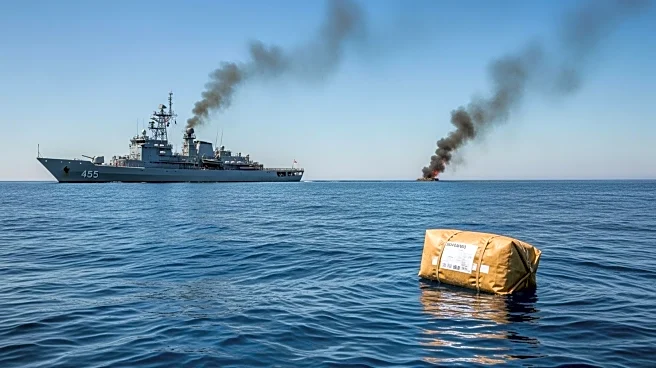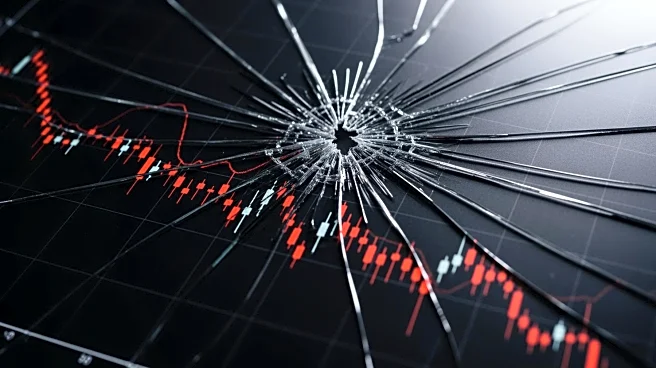What is the story about?
What's Happening?
The Israeli navy has intercepted a humanitarian flotilla headed towards Gaza, consisting of over 40 civilian boats carrying approximately 500 parliamentarians, lawyers, and activists, including notable figures such as Swedish climate campaigner Greta Thunberg and actor Susan Sarandon. The flotilla, known as the Global Sumud Flotilla, aimed to breach the maritime blockade to deliver humanitarian aid to Gaza. Despite repeated warnings from Israel to turn back, the flotilla continued its journey, leading to Israeli forces boarding several boats approximately 75 miles off the coast of Gaza. The Israeli foreign ministry confirmed the interception, stating that the flotilla was approaching a blockaded zone and offered to transfer aid through established channels. Activists onboard reported being surrounded by Israeli warships, and some boats were targeted with water cannons. Protests erupted in various European cities, including Rome and Brussels, in response to the interception.
Why It's Important?
The interception of the Gaza aid flotilla by Israeli forces highlights ongoing tensions surrounding humanitarian access to the region. The blockade of Gaza has been a contentious issue, with critics arguing it restricts essential aid and exacerbates the humanitarian crisis. The involvement of high-profile activists and the subsequent protests in Europe underscore the international attention and pressure on Israel regarding its policies towards Gaza. The incident may influence diplomatic relations, as European governments have urged the flotilla to avoid confrontation, while activists call for unrestricted humanitarian access. The situation also raises questions about the balance between security concerns and humanitarian needs, potentially impacting future aid missions and international responses to the Gaza crisis.
What's Next?
Following the interception, activists and international organizations may increase pressure on Israel to allow humanitarian aid into Gaza through alternative channels. Diplomatic efforts could intensify, with European governments potentially seeking negotiations to ensure safe passage for aid. The protests in Europe may continue, with labor unions and civil society groups mobilizing in support of the flotilla's mission. The incident may also prompt discussions within international bodies, such as the United Nations, regarding the legality and humanitarian implications of the blockade. The Israeli government may face calls to reassess its approach to Gaza, balancing security measures with humanitarian obligations.
Beyond the Headlines
The interception of the flotilla raises broader ethical and legal questions about the enforcement of blockades and the rights of activists attempting to deliver aid. The involvement of prominent figures like Greta Thunberg highlights the intersection of environmental activism and humanitarian efforts, potentially inspiring similar initiatives in other conflict zones. The incident may also influence public opinion and media coverage, shaping narratives around the Israeli-Palestinian conflict and humanitarian access. Long-term, the event could contribute to shifts in international policy and advocacy strategies, emphasizing the need for collaborative solutions to address humanitarian crises.















